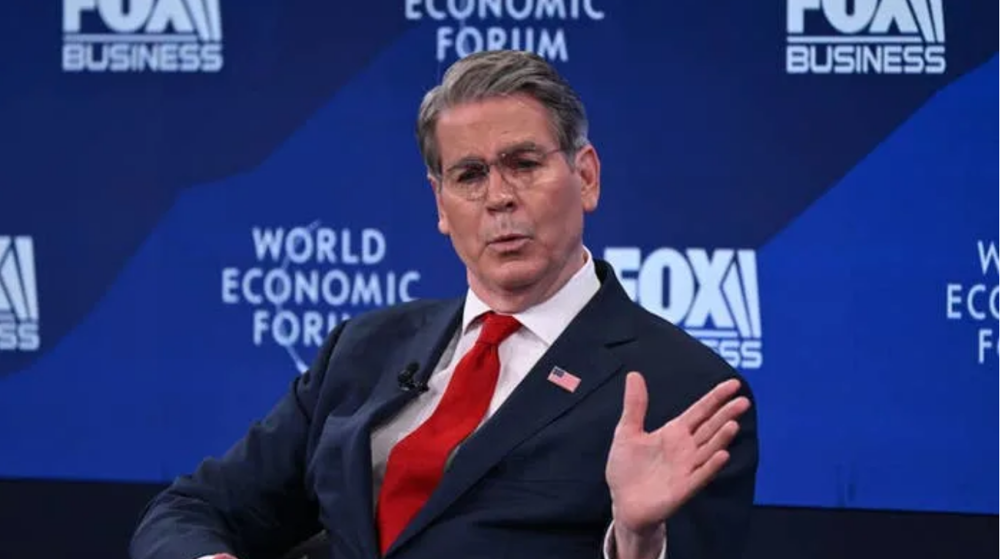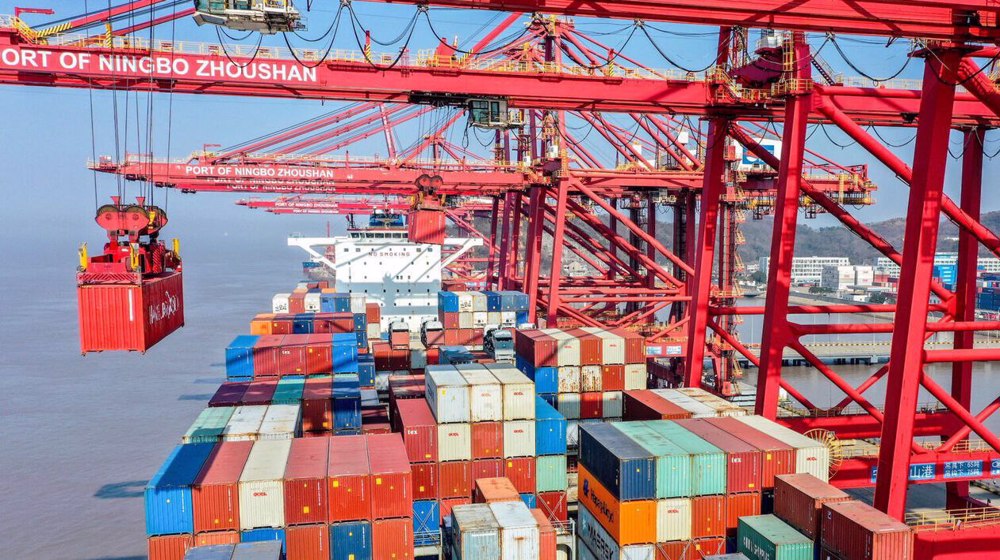Total’s deal bares Europe-US split on Iran
One German automaker has finally made its mind to resume business in Iran after a 17-year gap, as more European companies seem to be dropping their qualms about trade with the Islamic Republic.
French energy giant Total’s signing of a $5 billion contract on Monday to develop phase 11 of Iran's South Pars offshore gas field has sparked fresh interest in business opportunities in the Islamic Republic.
An Indian consortium said after the deal that it was willing to spend as much as $11 billion to develop Iran’s giant Farzad-B field and build the infrastructure for exports of gas from the repository.
Italy's state railway company Ferrovie dello Stato (FS) will send its CEO Renato Mazzoncini to Tehran next Tuesday to sign a 1.2 billion euro contract for the construction of a high-speed railway in Iran.
And Volkswagen announced it would resume selling cars in Iran from August after signing a deal with local importer Mammut Khodro.
The German car giant is already selling trucks in Iran through its Scania division.
Volkswagen will now export VW brand models Tiguan compact SUVs and Passat family car via eight dealerships, focusing on the greater Tehran area, the company said on Tuesday.
A statement issued by the company said it sought “to gain an insight into current market needs, establish the Volkswagen brand in Iran, and offer Iranians modern technologies 'made in Germany'."

For years, international carmakers have been salivating at the prospects of a buoyant market in Iran where some three million new passenger cars are estimated to be sold per year in the medium to long term.
According to a report by Fitch Group's BMI Research in April, Iran’s auto production growth will average 11 percent through 2021 and the return of European carmakers will boost the sector.
Volkswagen’s ebullient presence in Iran was related to the years before the 1979 Islamic Revolution when the automaker sold the Beetle and the Bulli van in the Middle Eastern country.
The company’s last venture in Iran after the revolution involved the production of the Gol compact with Iran’s Kerman Khodro before withdrawing under US pressures.
Among other German carmakers, Mercedes-Benz and Daimler have held partnership talks with Iranian automotive sides but they have been cooling their heels for a safer trade environment in the face of an unpredictable US regime.
Mercedes has indicated interest in forging a joint venture for production of trucks and powertrain components plus the establishment of a sales company for trucks and components.
Daimler plans to return as a shareholder in the former engine joint venture Iranian Diesel Engine Manufacturing Co. (IDEM) based in Tabriz.
However, they are facing a bumpy road for their return to Iran where French rivals PSA Peugeot Citroen and Renault have built a strong footing since the Islamic Republic’s 2015 nuclear deal.
Total and the other international companies have taken heart from the global aerospace industry’s engagement with Iran prevailing over increased hostility by the Trump administration.

Over the past year, Iran has finalized deals to buy up to 140 planes from Boeing and 100 from Airbus. Last month, two more Iranian airlines made prospective deals with Airbus to buy 73 jetliners worth $2.5 billion.
Experts believe Total’s landmark deal is expected to have far-reaching implications, setting a path for other international companies also to follow.
Hezbollah condemns Israel's ‘treacherous assassination’ of Al-Housh Mosque imam
Israeli woman shocked after being listed as ‘dead’ in recent Iran riots
Israel clearing northern Gaza land for settlements: Report
Gaza deadliest place for journalists and aid workers: UNRWA chief
Israel claims body of final captive recovered from Gaza
VIDEO | Armed gangs in Gaza at center of brewing power struggle over civil administration
3,500 Iranian cultural, media figures support Leader amid Trump’s threats
Hezbollah chief: New US-Israeli war on Iran will set entire region ablaze










 This makes it easy to access the Press TV website
This makes it easy to access the Press TV website